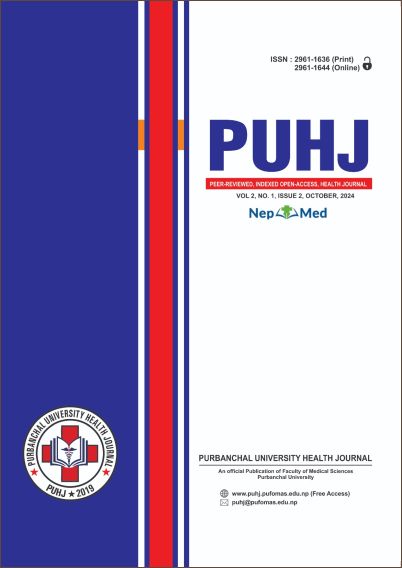The Impact of Mentorship Programs on Nurses in the Workplace: A Comprehensive Review
DOI:
https://doi.org/10.3126/puhj.v2i1.74949Keywords:
Career Satisfaction, Mentorship, Nursing, Skill Development, WorkplaceAbstract
Introduction: This review article explores the multifaceted impact of mentorship programs on nurses within the workplace setting. Mentorship has gained prominence as a crucial component in professional development, providing valuable support and guidance to nurses as they navigate the complexities of their roles. This systematic review was conducted to systematically search for existing literature on multifaceted impact of mentorship programs on nurses within the workplace setting and to critically evaluate and assemble the literature.
Method: PubMed, CINAHL and EMBASE databases were searched to identify relevant publications in English. Key words were impact, mentorship, nursing and workplace. The timeframe was from 2000 to 2023. Screening of the titles, abstracts, full articles (where necessary) was done and duplicates were removed. After the critical analysis of all the existing literature a narrative synthesis was produced.
Results: Total eighty-eight articles were screened. Among them one paper had been retracted. In total, seven papers were included for the study. These studies highlighted the fact that the turnover rate in nursing can be minimized through mentoring programs. Mentoring can also augment nursing proficiency and set up an encouraging workforce environment, which can ultimately result in positive outcomes.
Conclusion: Mentorship programs should include meticulous mentor selection and sufficient training. Consideration should be given to rigorous selection of mentors and adequate training in mentoring and traineeships. Finally, the development of mentor programs has proven to be successful in making it easier for new registered nurses to take on work responsibilities.
Downloads
Downloads
Published
How to Cite
Issue
Section
License
Copyright (c) 2024 The Author(s)

This work is licensed under a Creative Commons Attribution-NonCommercial 4.0 International License.
This license enables reusers to distribute, remix, adapt, and build upon the material in any medium or format for noncommercial purposes only, and only so long as attribution is given to the creator.




